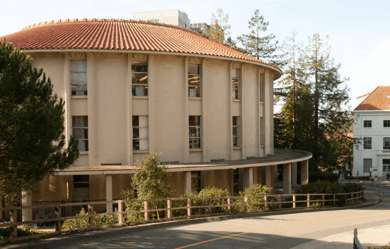| New Institute for Computer Science |
| Written by Sue Gee | |||
| Thursday, 03 May 2012 | |||
|
The University of California, Berkeley has been chosen for a new center for computer science funded by the Simons Foundation. Computer Science hasn't previously attracted the level of interest that it deserves but a $60 million grant to establish the Simons Institute for the Theory of Computing at U.C. Berkeley will hopefully place it on the map. The investment comes from the philanthropic foundation co-founded by Jim Simons, the mathematician noted for the Chern-Simons forms. He is also the creator of the hedge fund Renaissance Technologies, whose success has made him, according to the Financial Times, “the world’s smartest billionaire.” The funding is intended to enable interdisciplinary teams of scientists to explore the mathematical foundations of computer science and tackle problems in a wide range of fields. Richard M. Karp, the Berkeley computer scientist who will be the institute’s director and who has received the Turing Award, the Kyoto Prize and the National Medal of Science for his groundbreaking contributions to theoretical computation said: “We’ve been talking to astronomers, climate scientists, fluid mechanics people, quantum physicists and cognitive scientists,” A number of UC Berkeley research centers will be affiliated with the Simons Institute, including the Center for Information Technology Research in the Interest of Society (CITRIS), Mathematical Sciences Research Institute, ICSI and Lawrence Berkeley National Laboratory, which will contribute supercomputing capabilities at its National Energy Research Scientific Computing Center. Peter Norvig, director of research at Google, the Simons Institute’s first Founding Industrial Partner said: “Google is excited about the creation of the institute at Berkeley we believe it will be a great step forward for theoretical computing in general, and for many of the fields that are critical to Google’s mission, including search, machine learning, large data sets, security, computer vision, digital media, and the study of social networks and economic mechanisms on the Web. We look forward to assisting the institute in furthering these fields of research.” According to the Berkeley press release, the institute will begin operations in July, and its first scientific programs will start in January 2013. Later that year, the institute will move into its home in Calvin Hall.
The initial questions to be pursued will include how the diversity of life on Earth evolved in only 4 billion years, what the regulatory mechanisms are that govern immune response or the genesis of cancer, whether information can be divulged from a database without revealing specific details about an individual, and how to help create more accurate models of climate change. More Information$60 million Simons Foundation grant to launch theory of computing institute
Comments
or email your comment to: comments@i-programmer.info
To be informed about new articles on I Programmer, subscribe to the RSS feed, follow us on Google+, Twitter, Linkedin or Facebook or sign up for our weekly newsletter.
|
|||
| Last Updated ( Thursday, 03 May 2012 ) |


